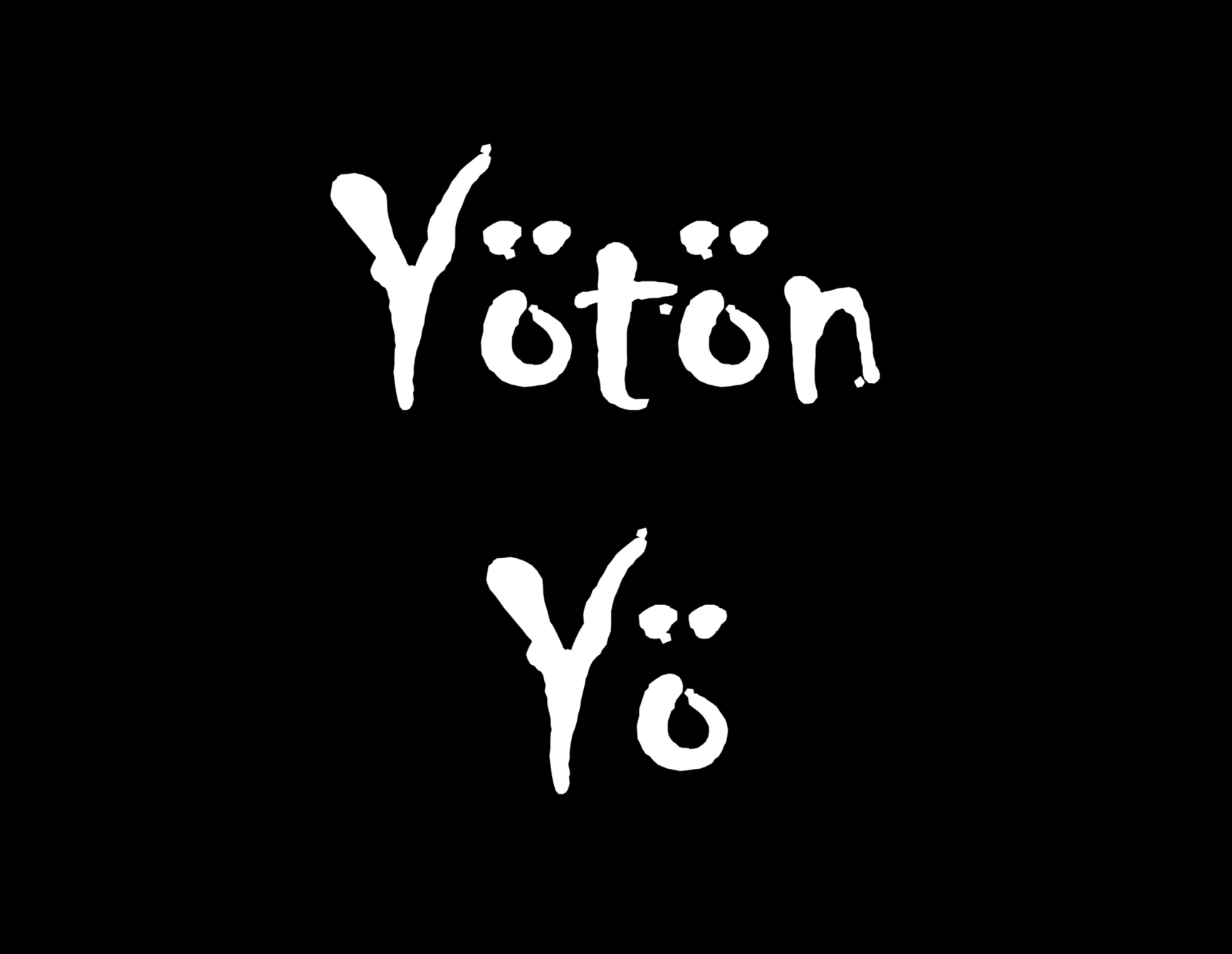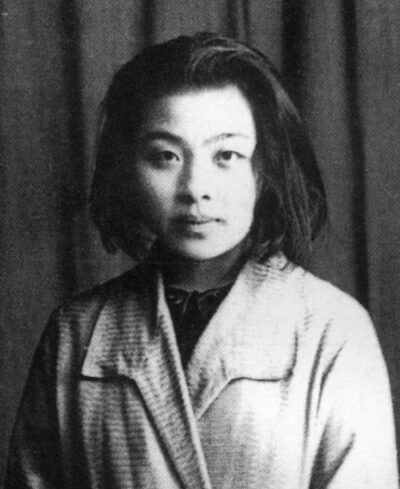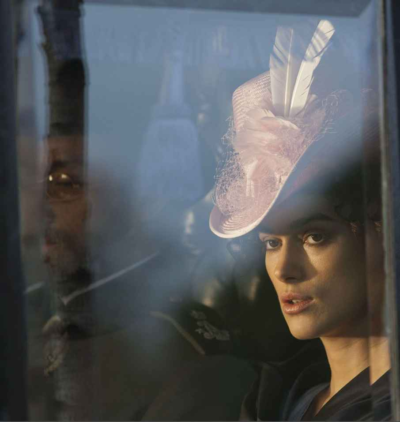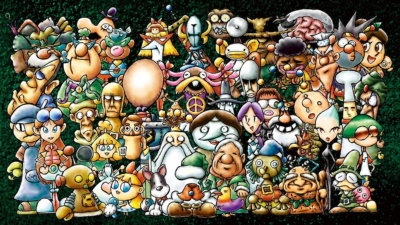“He’s been called by many names / Like a dying man curses death itself / And prays to a god of dark myths / Old Scratch, Satan, our savior / A black cloud boils inside his skull / It explodes out and rages into the night / With boundless joy in his eyes / He has come, it has come / To the bottom of the well, into a pile of corpses / No one will make it alive through this night / In his dark room he writes / He fishes you into this verse from his fever dreams / He stares at you in the mirror / The heat of the murder like a crown burning on his brow / You know his gaze, you can never forget / Even with his face hidden behind a veil of blood / It’s nightless night / It takes your soul / It’s nightless night / It devours you.”
Excerpt from “Yötön Yö” by Sam Lake
“Yötön Yö” is a song from the 2023 video game Alan Wake II, and this excerpt is the English translation of the original Finnish lyrics of the song’s bridge and final verse. The song, sung by the mysterious character Ahti, played by Martti Suosalo, reveals the narrative and core messaging of the game along with its “twist” ending. Players are first optionally exposed to this song very early in the game as Ahti sings the song in a building that players are not required to explore in order to progress, so these plot beats are discussed far before the player has enough information to string them together fully on their own. This creates a stir in players, who, understanding the cryptic Twin Peaks-esque puzzle nature of the game series, long to find meaning in every bit of information they are fed throughout their playthrough. The ambiguous nature of the song’s lyrics—who is “he,” for example—force listeners to utilize what little knowledge they have of the narrative thus far to decipher the hidden messages within the song, creating a game within a game for fans of the series. Even in this small segment of the song, players are forced to wonder if “he” is the devil, and if that devil is the self, or the main—and titular—character of the game, Alan Wake, when they are fed the line “He stares at you in the mirror.” Without getting too wrapped up in attempting to explain the plot, this would create a stir among players as Alan, since the first game in the series, is supposed to be seen as some type of flawed, yet noble, hero. So, this song forces players to ask “what changed in Alan?”
Players are given a few more chances to listen to this song throughout the game: once more as an optional and miss-able Easter egg in a movie theater where the song plays during the credits of the Yötön Yö film, and during a looping section at the end of the game where the song cuts in and out on the radio. At these points in the story, the pieces of the song’s meaning begin to fall into place, but nothing fully clicks until the game’s credits finally roll.
But other than presenting itself as a nice puzzle for players to solve, what draws listeners in? What makes players run to Ahti’s siren song in the early chapters of the game and stand there for about four minutes to listen to him sing? The lyrics themselves create a beautifully tragic story to follow, but what I think really pulls people into this haunting tune is the fact that it is originally sung in Finnish.
In my experience, hearing something or consuming media in a language other than your own adds an air of wonder to the experience. It forces you, perhaps exclusively in the case of songs, to connect with the medium via only the emotions you feel from the tone of it all. With these foreign language songs, you make inferences about what the lyrics could be about based on the usage of major or minor keys, for example. A good melody is enough to drag anyone in even if they can’t sing along. But then, and here’s the wondrous part, the enchantment you feel from listening to this puzzle of a song, a strange, haunting, yet captivating tune that you don’t understand but can’t stop listening to, makes you keep listening; and, in my experience, by continuing to listen, you can begin to sing along by vaguely mimicking the key sounds of certain parts of the song (stand out moments, a repeated chorus, singing “yötön yö,” if you will). I consider this phenomenon “interest by alienation”: the less someone knows about something as a result of puzzle-like language, the more they want to sit down and decipher it, which makes them feel rewarded and can perhaps invigorate them to learn more about that language or puzzle in the future. If done correctly, it can really motivate people to learn about languages or cultures they never would’ve thought about learning before (A Clockwork Orange motivates you to learn Russian—the language Nadsat is based on—and “Yötön Yö” and Alan Wake at large motivate you to learn Finnish).
I don’t know Finnish. At all. But, from my engagement with Finnish music like “Yötön Yö” I am able to say a few words and phrases with a bit more accuracy than someone who would stare at these words on a page and just try and go for it. Listening creates understanding (of sounds, at the very least), which creates a sense of pride in your ability to at least appear to understand a foreign language, and truly, the enjoyment I got from simply being able to sing along to a song I liked made me actually want to learn Finnish (perkele, se on vaikeaa).
This idea of discovery through language is most notably, to me, found in the novel A Clockwork Orange, which, if you were like me and read the book without a glossary of translations, forces you to learn and slowly translate the book’s made-up language Nadsat. The confusion you are struck with on the first few pages quickly morphs into pride as you are able to breeze through the novel and understand exactly what the narrator Alex means when he says things like droogs, horrorshow, or viddy. It makes you feel like you’re in on something special that no one else around you can quite understand and, again, gives you that sense of pride for essentially learning a new language to some degree and solving the puzzle presented to you. There is just something inherently satisfying about being able to make sense of something that once seemed alien or absurd. You may have suffered through bouts of confusion for about 100 pages, but at least now you understand that the book you’re reading is actually called A Mechanically Responsive Man and why exactly it is called that.
But “Yötön Yö” was not exclusively presented to me as a Finnish audio track alone, no, when I found it at the beginning of Alan Wake II, it was shown to me with subtitle translations of the lyrics. I played the whole game with the subtitles on, and for most of the game, many characters speak a combination of Finnish and English, and this is subtitled accordingly, leaving you to guess what was said in Finnish. However, there are two moments where the subtitles do not simply reflect the words being said and are rather expressed as English translations: when you listen to “Yötön Yö” at the beginning of the game and when you watch the Yötön Yö movie towards the end (interestingly, the song itself is not subtitled during this).
My issues with this in terms of accessibility aside, this was instrumental to me falling in love with the song. For the first time ever, I was able to experience a foreign language song while simultaneously understanding what it was expressing in my own language. The words I heard sounded like rivers stirring, swirling, carefully careening past rocks to form a lovely, delicate melody that would simply not sound as poetic in English. Read the translation at the beginning of this passage. There is no rhythm. There is no melding of words to create a seamless flow. There is beautiful language, but nothing you would expect to see in a song. But that jaggedly strewn together phrasing, while not rhythmic, reveals a world of horror, of violence and power that you might not expect from such a calm sounding song. Yes, the song does have its moments of build-up and growth in energy, but they would’ve never clued me in to ideas of murder and recognizing yourself as the problem in the struggles of your life.
Ignoring the song as a song, I want to now look at it simply for the words alone, just a few stand out phrases. The lines that stick out to me the most are “He’s been called by many names / Like a dying man curses death itself / And prays to a god of dark myths / Old Scratch, Satan, our savior.” The word that gnaws at my brain each time I hear this song or read the lyrics is “our savior,” “Vapahtajaa.” How can someone so horrible be your savior? Someone who is coated in blood, who will ensure that no one makes it out alive during the night, how can they be a savior?
Simple. Alan, the titular character of the game, and subject of this song, is both his worst enemy—Old Scratch, Satan—and his own savior, “Vapahtajaa.” His mind is filled with dark clouds that make him act out in a rage, treat people he loves–and himself–horribly. He is trapped in his writer’s room, surrounded by the corpses of past manuscripts, relationships squandered by his inability to recognize his own faults, trapping himself in this cycle of pain. But he has come to see his reflection as a separate entity, a “him,” not an “I,” and so he is trapped in his nightless nights, unable to discover why in the world he would ever find a savior in the devil.
The lyrics are so horribly tragic, and yet they present a message that I think is applicable to anyone, not just every-man protagonists in supernatural based horror narratives. Alan Wake is a creative, a novel writer, and his struggles with the self come from his doubts about his ability to create, to create something meaningful. He loses faith in himself and thus drags himself and those around him down with him. You don’t have to be a novelist, poet, song writer, or any type of creative to feel this way. Self-doubt is a universal experience, you will inevitably trap yourself with these “black clouds” in your skull, being devoured by the “nightless nights” you’ve created, but you have to find the savior in that storm to make your way out.
Work Cited
Alan Wake Wiki. “Yötön Yö (Song).” Alan Wake Wiki, Fandom, Inc., 2024, alanwake.fandom.com/wiki/Y%C3%B6t%C3%B6n_Y%C3%B6_(song). Accessed 15 Apr. 2024.
Featured Image Attribution
“Yötön Yö” by Liz Radko. All Rights Reserved.




